برنامج المنطقة الأوروبية
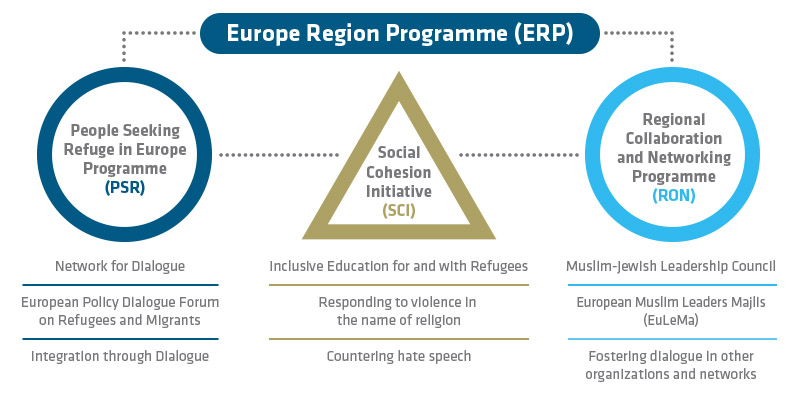
في عام 2021، وسَّع مركز الحوار العالمي "كايسيد" برامجه في أوروبا لمعالجة التداعيات المتعددة الطويلة الأجل لأزمة اللاجئين في عام 2015 والتحديات المعقَّدة التي تفرضها الهجرة. وعلى مدى السنوات الست الماضية، اتسمت القارة بتهديدات لتماسكها الاجتماعي وبزيادة الخطاب القائم على الخوف الذي يستهدف اللاجئين والمهاجرين في مناخ سياسي واجتماعي يزداد تحديًا وبالافتقار إلى تدابير فاعلة وسياسات مستدامة لتعزيز اندماجهم في المجتمعات الأوروبية المضيفة.ويسعى المركز، عبر توسيع نطاق برامجه في أوروبا، إلى إتاحة خيارات عديدة لمساعدة قيادات المجتمع المدني على تنسيق الجهود المبذولة حاليًّا من أجل الاندماج بسهولة أكبر وإعانة صانعي السياسات على تمثيل شواغل مختلِف المجتمعات المحلية في القارة والتعبير عنها.
وإن برنامج المنطقة الأوروبية (ERP) الذي نُظم بالاستناد إلى ثلاث ركائز رئيسة مصمَّم لتوحيد القيادات الدينية وصانعي السياسات في الجهود المشتركة التي تعالج بعض المشكلات الأكثر إلحاحًا في القارة، ومنها الحاجة إلى التعليم الشامل للاجئين والمهاجرين وضرورة استكشاف السبل التي يمكن بها للقيادات الأوروبية العمل على حماية المكونات المجتمعية الدينية جميعها والحفاظ على التضامن الاجتماعي وتعزيز هذه السبل وتقديم أدوات بناء القدرات للقيادات الدينية ومؤسسات القيم الدينية لبناء القدرة على الثبات ومكافحة خطاب الكراهية وجرائم الكراهية في أوروبا.
Strengthening IRD in India

KAICIID is open to all world religions, and aspires to be active among followers of each one. There are few countries more religiously diverse than India, with significant populations of Christians, Muslims, Sikhs and Hindus. Managing the interests and mutual understanding of the different groups is important to preserve peace and the safety of minorities, as well as to prevent violence. KAICIID worked in India in 2013 a symposium was organized to explore how IRD could benefit educational materials in the region, and in 2014 the Dialogue Days initiative was launched to train religious leaders in media literacy, and young IRD practitioners in the most effective means to publicize their work through social media. Strengthening IRD in India, which took shape in 2015 built on the success of Dialogue Days, focusing on young people. The culture of dialogue is often “top-down”, i.e. initiated and driven by charismatic, elder religious leaders. To engage young people, the programme provided young people skills to engage their peers, as well as to make their concerns known to those in influential positions, without relying on elder interlocutors. Through small group training for young activists and religious leaders, 100 people were trained directly. These young individuals were primarily nominated by their organizations because they will be best able to use their new skills to best effect for their institutions. The training included social media as a space for dialogue, media literacy, strategic advocacy for interreligious dialogue and understanding, the role of interfaith dialogues and platforms in India, as well as a five-day youth camp. As multipliers these religious leaders and future institutional leaders can work toward long-term changes in their institutions’ culture and practices.
During this initiative, a report on interreligious dialogue in India was commissioned, edited and compiled by a young team of editors following a methodological workshop for academics, which took place in October 2015. The publication, which is understood to be one of the first comprising research in this field, is expected to be completed in Q3 2016.
KAICIID carried out the India programme with its collaborating partner Sarva Dharma Samvaad (SDS). SDS coordinated the attendance of various high-level observers and speakers, including K. G. Suresh, Director General of the India Institute of Mass Communication, Professor J.S. Rajput, former Director of the National Council of Educational Research and Training, and the Chief Minister of Uttarakhand, Harish Rawat, as well as receiving support from the Indian Ministry of Culture.
“Strengthening IRD in India” closed in August 2016.
Asia region

Asia is home to some of the world's most culturally and religiously diverse populations, presenting both opportunities and challenges in fostering peaceful coexistence. The region is also experiencing rapid urbanisation, economic shifts, and complex security dynamics, making the need for dialogue more urgent than ever. KAICIID’s efforts in Asia focus on promoting interreligious and intercultural dialogue as essential tools for peacebuilding, conflict resolution, and social cohesion. By bringing together religious and faith-based leaders, government officials, civil society, women and youth, KAICIID ensures that diverse voices contribute to solutions for the region’s most pressing issues, including environmental challenges, digital divide, and social inclusion.
KAICIID initiatives with the UN, EU, and AUC

Interreligious & Intercultural Outreach in Austria
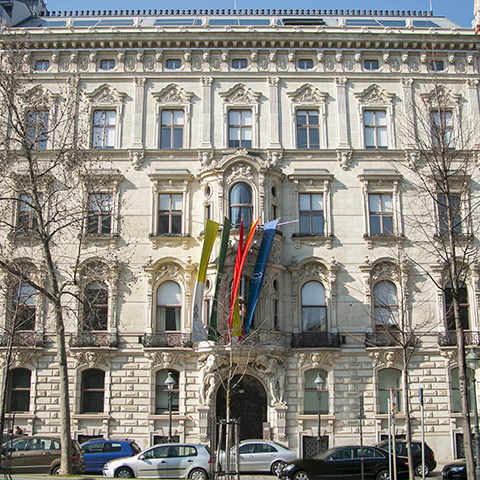
KAICIID engages with the Austrian public as an integral part of the Centre’s activities – promoting the positive, transformative effects of dialogue in the Centre’s host country, by bridging stakeholders from diverse backgrounds through intercultural and interreligious events. KAICIID regularly opens its doors to the public, hosting art and photography exhibitions, musical performances, expert lectures, interfaith workshops and headquarter tours. These dynamic events provide a space for guests to experience new cultures and perspectives, connecting individuals from Austria and around the world.
United Against Violence in the Name of Religion

In February 2018, KAICIID organized a global conference which brought together leading representatives from numerous religious communities to support peaceful coexistence. At the conference, the Centre launched an historic interreligious platform supported by Christian and Muslim leaders to advocate for the rights and inclusion of all communities in the Arab world. The Platform is the first interreligious dialogue platform of its kind. Planned activities of the platform include training clergy of all religions to combat hate speech, implementing initiatives which empower youth and women, and working with local and national authorities on policy which promotes social cohesion and equal rights.
Frieden und Versöhnung durch interreligiösen Dialog in Nigeria
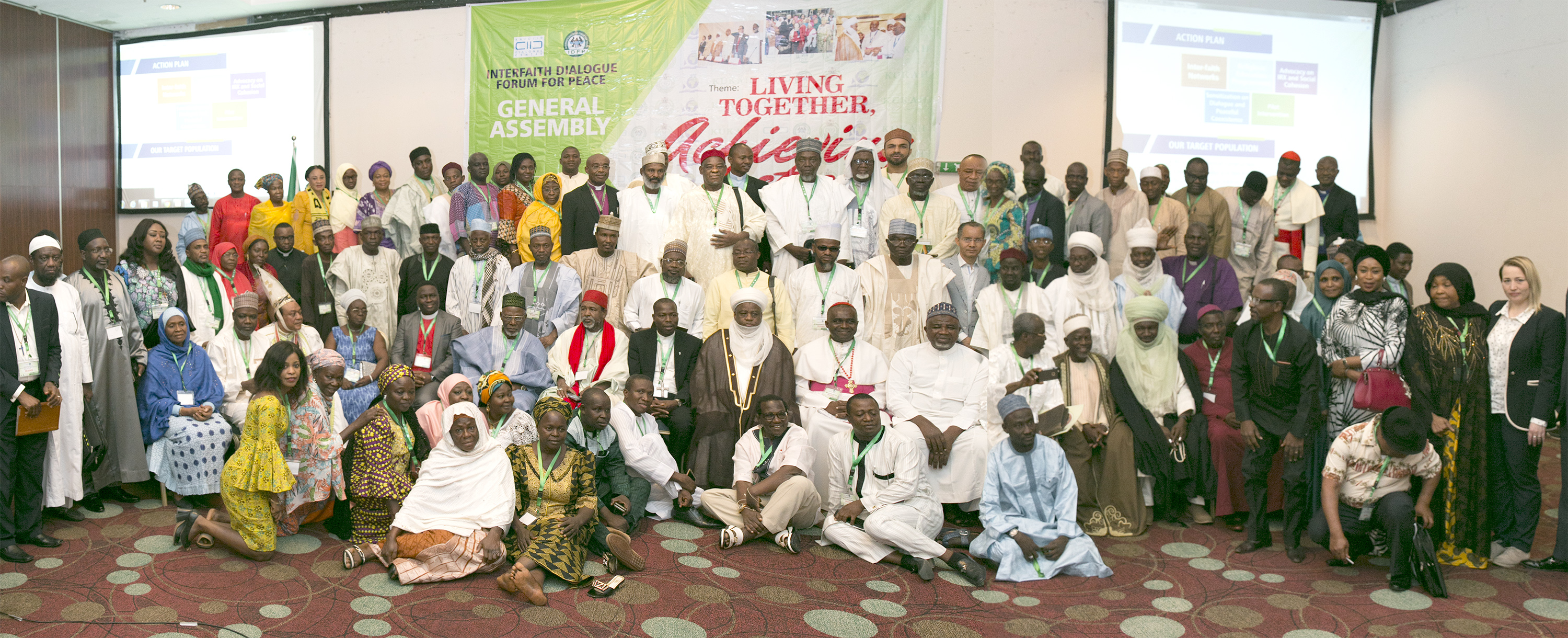
Projekt in Partnerschaft mit dem Kukah-Zentrum, dem Interreligiösen Mediationszentrum und dem Institut für Frieden und Konfliktlösung (IPCR)
The Image of the Other in the Media
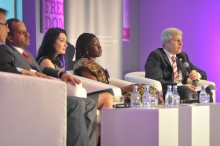
KAICIID Media Programme
The KAICIID Media Programme seeks to address the misrepresentation of religion and religious people in the media and on the Internet in a way that upholds press freedoms. People should have an accurate understanding of religious communities and beliefs—and their preconceptions are shaped in large part by the media and online information. KAICIID is developing training courses and conducting outreach through publications and events in order to address this need. KAICIID works with interreligious dialogue practitioners, religious leaders and journalists from religious and secular media in a two-pronged approach. On one hand, KAICIID seeks to support the more accurate representation of religion and religious communities in the media and online. On the other hand, religious leaders, who serve as channels of information to their communities, must also be savvy in their consumption of media and information: empowered to respond to hate speech and misrepresentations, and critically aware of the way media and information sources shape perceptions.
The Image of the Other in Education
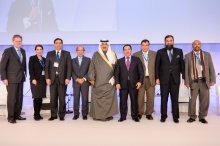
Interreligious and intercultural education means learning about the faiths and cultures of others, including through dialogue and exchange. It takes place in many forms across the globe, as part of disciplines including citizenship education, peace and values education, social studies and history. It occurs in confessional and non-confessional contexts, in formal and non-formal education. It builds intercultural competencies, preventing stereotypes and discrimination.
The current culturally diverse models of interreligious education have the power to support social cohesion and peaceful coexistence. KAICIID’s work in this field draws upon a rare and specialized expertise base in interreligious and intercultural dialogue training and skills as a pillar of lifelong learning.
KAICIID’s Image of the Other Programme began with a focus on building accurate representation of religious and cultural diversity through interreligious and intercultural education. KAICIID connects researchers, practitioners, educators and policymakers to each other to share case studies and methods successfully used in intercultural and interreligious education in all world regions to promote diversity. The programme supports the exchange of ideas and approaches, serving as a platform for public outreach, sharing best practices, ideas and materials trans-regionally.
In the first year of the programme, KAICIID held four regional conferences to survey practitioners and gather best practices and recommendations that were then presented at the KAICIID Global Forum in November 2013. In 2014, a programme was developed that implemented these recommendations, featuring three distinct approaches:
The Practical Strand includes the development of an online resource prototype and tool kit for curriculum development and self-assessment, teacher training and student assessment to bridge the gap between existing international standards and practical needs in different world regions. More specifically, the tool includes goal-setting, professional development for educators and assessment tools for students, including online tools that will be applicable in various countries.
The Intellectual Strand covers the generation of knowledge and the sharing of diverse practical and policy approaches with interreligious education institutions worldwide. KAICIID is the guest editor for a special issue of the journal International Review of Education (IRE) focusing on interreligious education. The journal is distributed in over 3000 academic institutions.
The Policy Strand includes the maintenance of a network of education experts and governmental focal points, to enable them to share and develop policy practice in interreligious education. This strand includes a number of ongoing meeting and conferences in the framework of the KAICIID Policy Network.
KAICIID POLICY NETWORK
A direct result of the recommendations from KAICIID’s 2013 Image of the Other in Education programme, the KAICIID Policy Network (KPN) is a platform for experts and governmental focal points (education, religious affairs and integration ministries) to discuss interreligious and intercultural education in formal and non-formal education. The focus includes interreligious education, curriculum development and evaluation tools, teacher training and new e-learning resources.
The first of its kind, the KPN is designed to fill a gap by supporting education policymakers, curriculum developers, supervisors and evaluators in their efforts to promote accurate representations of which supports and cross-cultural understanding. The network provides sustained dialogue and information sharing; peer advising and technical assistance; professional development and maintenance of professional relationships among network members.
Through private working meetings, policymakers and education experts from international organizations and academia share information, build institutional memory and expertise, enhance communication and better increase awareness and understanding of different types of approaches in and across diverse national contexts. The KPN is a cross-border community committed to interreligious and intercultural education.
E-Learning Courses
KAICIID e-learning courses are designed to benefit both dialogue professionals and the general public. All e-learning courses are linked with global initiatives and development goals for sustainable peace. Participants can register for a short self-paced course, or a longer instructor-led moderated course. The e-learning courses are interactive, compatible with mobile devices, and are offered free of charge in English, as well as Arabic, Portuguese and French. A certificate is provided upon completion.